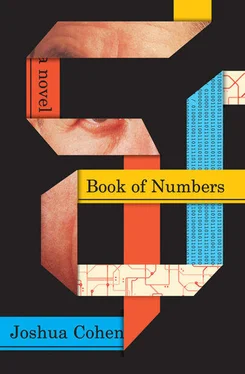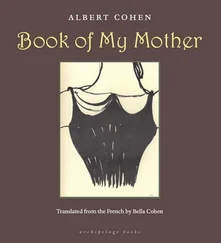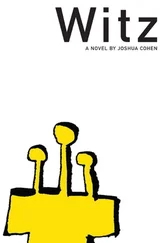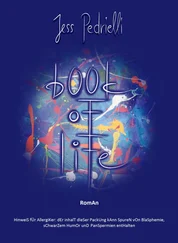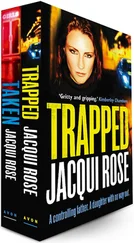“Common,” he said. “Never be ashamed of the common. The common is useful. Common understands.”
Joseph said that just as Cohen had a father, he, Joseph, had a father too, he still had one. “Other people are unlucky and have never had a father, but anyone who has ever had a father will have him forever.”
Joseph’s father had been named Yehoshuah, Joseph said, which was just Joshua in Hebrew , though his family had spoken Yiddish and called him Heschel, and his wife, Chava, called him Shy.In America he cut ice, this was before refrigerators, before freezers, he would have to wait for the freeze—“it froze more often back then, it froze more thick”—and then when the ice was sturdy enough he’d venture out onto it, the ice over the river, ice over the bay, and cut it out in blocks, cutting the ground out from under himself, like how the Israelite slaves built the pyramids.
[REPETITION: In Egypt, Joseph said, the Egypt of Europe, his father, Yehoshuah, had been a rabbi — in Bershad. Cohen asked what Bershad meant and his grandfather answered it meant Bershad. It was a city the size of a city block. All of it might fit inside Grand Central, or Port Authority. Yehoshuah didn’t have a congregation, but instead navigated the territory around Bershad delivering rulings on kashrut and fair labor practices, performing weddings and funerals. He’d be gone for days, even a week, at a time , like a traveling salesman, offering women brushes, combs, fertility incantations, fiduciary spells.]
“He had many brothers and sisters,” Joseph said. “In America, people don’t have that many brothers and sisters, even though they have the money to have them. I could never understand. My mother, and Evele, never could.”
Joseph told Cohen that Yehoshuah was the eldest of eight or nine children and Cohen asked how it was that his grandfather didn’t know whether the number was eight or nine and Joseph answered, “Old people have trouble remembering, young people have trouble knowing.”
Cohen was confused and Joseph said, “We left so young I barely knew how many hands I had, let alone how many fingers. Such a rush we didn’t count.”
But Yehoshuah knew the numbers, Joseph said, he was the type who always knew. “If you don’t keep the numbers in your head, they keep them for you on your forearm.”
Joseph said his parents, Yehoshuah and Chava, took him out of Bershad but left their family behind. “Uncles, aunts, brothers and sisters on both sides, cousins — the family was now what is called nuclear.”
[FUCKING REPETITITITIOUS.]
But it was difficult to stay in touch with the rest of the family, Joseph said, especially given all the turmoil. It wasn’t like he could just pick up a telephone, or send a telegram so easily. Rather he could, Joseph said, but it wasn’t like the family was always available to pick up the other end, or reply. The post was unreliable too, especially for packages. Instead, Joseph said, we could only think certain thoughts, and they could only think certain thoughts and, but this was important, “Each half of the family had to know that’s what the other half of the family was doing.” Joseph said, “At least, that’s how my father explained it.”
“He told me he’d picked his own star,” Joseph said, “like Polaris — lots of people pick Polaris, especially if they’re young, especially if they live in the north, in the cold. And he told me that if he was in the mood to communicate with his family he faced this star, not at a certain time or from a certain place, but whenever, wherever, and he talked to that star, or he didn’t even talk, he told me, he just poured himself into it, all his life and frustrations, all his feelings, his dreams, he just poured all of himself into that fire.
“Then he told me,” Joseph said, “that I could do the same thing, that I could just find a star, any star — I could find my own or I could use his star, because any star has the capacity of all of them — and I could invest this star with my emotions, I could make this star the outside pocket for everything inside me, and that the family still over in Europe would have their own stars and would do this same thing too, all of them, all of us, sending and receiving.”
[REMOVE FROM DIRECT QUOTATION]
Joseph told Cohen that these communications would become stored in these stars, turning them into mutual archives, common caches, omnipresent and yet evanescent. From which they could be accessed, not at a certain time or from a certain place —“people have to work, after all”—but at any time, and from any place, and ultimately not just by the relations and friends they were intended for but also by anyone sensitive enough to go seeking. Anything ever communicated to a star, Joseph told Cohen, could be accessed even after the death of its transmitter, and, unlike with the spinning satellites and their transmissions, could be accessed and even altered by the dead themselves, and then he mentioned Oma Eve and encouraged Cohen to speak with her in this way, freely, and then he mentioned himself and encouraged Cohen to speak with him in this way too, freely, once he himself passed, to that light on the other side of the darkness.
“Your father does this kind of thing now with machines, which I don’t have to understand. Because what they do isn’t new to me.”
But returning back to the bungalow, Cohen turned to his grandfather and asked about daylight, pointing out that this system worked only at night, or in darkness, and furthermore he’d studied at school how the sky was always changing around in circles and if in some seasons the stars decided upon were present, in other seasons they were absent, and so access was not as universal as his grandfather had said it was.
Joseph turned to Cohen and said, “Tell it to Polaris.”
://
from the Palo Alto sessions: We went to Montessori, both D-Unit and M-Unit were active in the PTA. Basically we won everything at maths and sciences. But math really. Math was really our thing. Age eight was algebra, geometry. Age nine was trig and calc. M-Unit and D-Unit packed us brownbag lunches. Lots of veggies and fruits, pita crisps, bean dips, major beanloads. 1x/weekly an egg, 2x/weekly a yogurt, only if we insisted. Though there were vendingmachines at PARC and the Berkeley Linguistics Department and we would p/matronize them depending on whether D-Unit or M-Unit would pick us up from school. Basically just Fritos at Berkeley. But Twix and Mars bars at PARC. We did not consume them but bought them to sell to fellow students. Our best customers were Ricardo Boyer-Moore, now of Aquarius Initiatives, Bjorn Knuthmorrpratt, founder/CEO thebestof.us. A line taped to the carpet in the den marked how far we had to sit from the TV in order not to be irradiated. We were raised on a halfhour of TV per day we were allowed to choose ourselves though we had to justify our choices daily either in oral argument or writing [ANY OF THOSE WRITINGS STILL AROUND?]. The same policy obtained for the body, if we wanted to be exempt from the vegan dinner diet of our parents [THOSE WRITINGS?]. Rule #1 was do not waste water, only turn the faucet on to rinse, do not keep it on while teethbrushing or facewashing. Rule #2 was the same applied to energy, turn off the lights upon leaving a room, always keep the fridge and freezer doors shut, and memorize not just their insides but the insides of every room so as like to minimize ajarage and not waste electricity. M-Unit and D-Unit told us we could not have a pet until our 10th birthday when they brought home a lemming we named Chomsky. M-Unit lovehated Chomsky [EXPAND?]. But the lemming died and was replaced by a vole because it had an even shorter life expectancy and was largely monogamous, though we could only have one at a time, and the first we named Zuse [EXPAND?] but then it also died and was replaced by a second vole whose name we cannot recall and when that died too D-Unit brought home two computers. M-Unit chose the Tandy 2 so that left for us the IBM 5150. We also had an Alto in parts in the basement. Or we had so many parts of so many Altos D-Unit called the heap of them “Tenor and Bass.” FORTRAN, 1983. PASCAL, 1983. M-Unit was disappointed we were never too proficient at language-languages. Except. Give us a piece of paper, a writing thing.
Читать дальше
